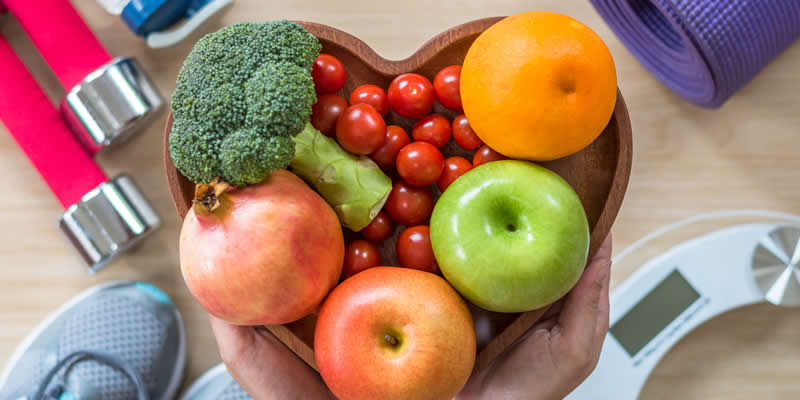A new study shows fruit and vegetables cost around 40 per cent more than they need to, due to high fixed costs which do not apply to unhealthy alternatives.
Researchers have suggested introducing a subsidy to stabilise the price distortion and lower the cost of fruit and vegetables to encourage healthier diets.
Economists at the University of Warwick calculated the distortions in the cost of fruit and vegetables, and how this affects our diets.
- High consumption of fruit and vegetables linked to reduced stress
- Adding larger portions of vegetables to children’s dinners will ‘boost their intake’, researchers say
Fixed costs throughout the supply chain play a major role in the price of fruit and vegetables compared to other foods. The researchers believe this causes people to buy 15 per cent less fruit and vegetables than they would if it was sold at marginal cost.
One of the study authors, Professor Thijs van Rens, also leads the Warwick Obesity Network, which produces evidence-based policy and practitioner briefs to encourage a national strategy against obesity.
Professor Rens explained: “The food retail market is very competitive, so if there weren’t any fixed costs you would expect food to be sold close to marginal cost. And the fact that they are not affects diets.
“A higher price of any product means that people buy less of it. The question is, by how much? We find that if the market were working correctly, consumers would buy 15 per cent more fruit and vegetables than they currently do, which would constitute a huge gain for public health.”
He continued: “There is something wrong with the market, which is that there’s a high fixed cost in the provision of fruits and vegetables. The effect of that is that the prices are too high, and consumption too low. What is worse: the effect is stronger when demand is low. And demand happens to be low where people are poor. So, this market failure not only makes us all unhealthier, but it increases health inequality as well.”
The price of a product includes fixed costs linked to its manufacture and distribution. Because fruit and vegetables are perishable, their fixed costs are higher, which increases the cost. Fresh produce is more costly compared to other, unhealthier foods which are priced closer to their marginal cost.
The economists measured the impact on consumers’ fruit and vegetable purchases based on the consumption habits of households with different incomes using data from the NielsenIQ Homescan dataset, which provided information about the amounts and costs of food purchases from 2004 to 2014 from around 60,000 households in the US.
- Man puts type 2 diabetes into remission 23 years since diagnosis
- Weight loss surgery is beneficial for people with type 2 diabetes, study claims
The researchers suggest a subsidy of up to 25 per cent on fruit and vegetables to boost our intake of them and improve our diets. On estimate, UK supermarkets sold around £10.4 billion of fresh produce in 2017, so the subsidy would cost the government an estimate of £2.5 billion per year.
However, it is estimated that the NHS spent £6.1 billion related to overweight and obesity ill-health in 2014/2015 and is predicted to spend £9.7 billion by 2050. It is estimated that the overall cost of obesity to wider society is around £27 billion.
Professor Van Rens added: “Taxing and subsidising to tackle obesity has been politically infeasible for some time but shouldn’t be any longer. Obesity is a massive public health problem and we’re not going to solve it with tweaks. We need to bring out the big guns: subsidies and taxes. A subsidy is in some ways the most market-based, least invasive intervention you can think of. Anything less than that is just giving friendly advice and will not get us where we need to be.
“There is no debate that fruit and vegetable consumption would increase if you subsidise it. The main contribution of our research is to show that the market is already so distorted that this subsidy would benefit every single consumer in the economy.”
The study was published in the journal Science Advances.






